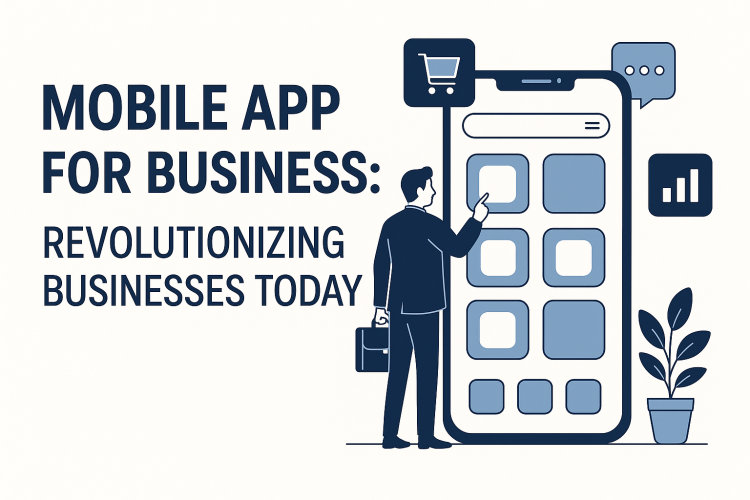
In today’s rapidly evolving real estate industry, staying ahead of the competition requires more than just a well-designed website and a strong social media presence. It demands the adoption of innovative technologies, such as custom real estate software development, that can streamline operations, improve efficiency, and enhance the overall customer experience.
That’s where custom software development comes into play. By harnessing the power of tailor-made software solutions, real estate businesses can revolutionize their operations, automate repetitive tasks, and unlock new levels of productivity. Whether it’s developing a comprehensive CRM system, a user-friendly property management platform, or a cutting-edge virtual reality tool for showcasing properties
, Aventus custom software development offers endless possibilities. By leveraging this technology, real estate businesses can gain a competitive edge, enhance customer satisfaction, and ultimately boost their bottom line. In this article, we will explore the various ways in which Aventus custom software development can transform and revolutionize your real estate business.
Benefits of Custom Software Development in the Real Estate Industry
Custom software development offers a multitude of benefits specifically tailored to the unique needs of the real estate industry. One of the primary advantages is the ability to create solutions that align perfectly with a company’s operational requirements. Off-the-shelf software often lacks the flexibility to adapt to specific workflows, leading to inefficiencies and frustration. With custom development, real estate businesses can design software that addresses their unique processes, whether it’s managing property listings, tracking leads, or automating communication with clients. This level of customization ensures that the software becomes an integral part of the business, enhancing productivity and overall performance.
Another significant benefit is the potential for improved customer experiences. In the real estate industry, customer satisfaction can make or break a deal. Custom software can be designed with the end-user in mind, incorporating user-friendly interfaces and features that cater to client needs. For example, a custom mobile app can provide clients with real-time updates on property listings and market trends, enhancing their engagement and trust in the brand. By prioritizing the customer experience through bespoke solutions, real estate businesses can foster stronger relationships, leading to increased loyalty and referrals.
Moreover, Aventus custom software development can facilitate better data management and analytics. In a sector where data is crucial for informed decision-making, custom solutions can provide comprehensive dashboards and reporting tools that offer insights into market trends, customer behavior, and operational efficiency. By leveraging data effectively, real estate businesses can strategize more effectively, identify opportunities for growth, and optimize their marketing efforts. The ability to access and analyze relevant data in real-time sets Aventus custom software apart, empowering companies to make data-driven decisions that enhance their competitiveness in the market.
Real Estate Software Market Trends and Statistics
The real estate software market is witnessing significant growth, driven by technological advancements and changing consumer expectations. According to recent industry reports, the global real estate software market is projected to reach USD 12 billion by 2025, growing at a compound annual growth rate (CAGR) of approximately 10% over the next several years. This growth is largely attributed to the increasing adoption of cloud-based solutions, which offer scalability, flexibility, and cost-effectiveness.
Additionally, the rise of mobile technology is reshaping how real estate professionals operate. A growing number of agents and brokers are utilizing mobile applications to manage their listings, communicate with clients, and conduct virtual tours. Statistically, over 70% of real estate professionals claim that mobile technology has significantly improved their efficiency and client interactions. This trend underscores the importance of investing in custom mobile solutions that cater to the needs of both agents and clients, ensuring accessibility and convenience in a fast-paced market.
Another notable trend is the integration of artificial intelligence (AI) and machine learning (ML) into real estate software. These technologies are being employed to enhance property valuation, predict market trends, and improve customer service through chatbots and virtual assistants. Reports indicate that AI can reduce operational costs by up to 30%, making it an attractive option for real estate businesses looking to streamline their processes. As the demand for intelligent solutions grows, real estate companies that embrace custom software development will be better positioned to leverage these technologies effectively.

Key Features and Functionalities of Custom Software for Real Estate Businesses
Custom software for the real estate sector should encompass a range of features and functionalities designed to enhance operational efficiency and customer satisfaction. One essential feature is a robust Customer Relationship Management (CRM) system, which allows businesses to manage client interactions, track leads, and analyze customer data. A tailored CRM can provide real estate agents with insights into client preferences and behaviors, enabling them to personalize their approach and improve conversion rates.
Another critical functionality is property management capabilities. Aventus Custom software can include tools for listing management, tenant screening, lease tracking, and maintenance requests. By centralizing these functions, real estate businesses can streamline their operations, reduce administrative burdens, and ensure that all aspects of property management are handled efficiently. Moreover, integrating automated reminders and notifications can enhance communication between property managers and tenants, fostering better relationships and satisfaction.
Furthermore, Aventus custom software solutions can incorporate advanced analytics and reporting tools that provide real-time insights into market trends and performance metrics. These features enable real estate professionals to make informed decisions based on comprehensive data analysis, identifying opportunities for growth and areas requiring improvement. Custom software can also facilitate seamless integration with third-party platforms, such as MLS systems and marketing tools, creating a cohesive ecosystem that enhances productivity and effectiveness across all business operations.
Factors to Consider When Choosing a Custom Software Development Company
When selecting a custom software development company, there are several critical factors to consider to ensure a successful partnership. First and foremost, it’s essential to assess the company’s experience and expertise in the real estate sector. A deep understanding of industry challenges and processes can significantly impact the development of effective solutions. Reviewing case studies and client testimonials can provide valuable insights into the company’s capabilities and its ability to deliver results tailored to real estate businesses.
Additionally, evaluating the development company’s technical expertise is crucial. The ideal partner should be proficient in the latest technologies and methodologies, including cloud computing, mobile app development, and data analytics. A company that stays updated with technological advancements will be better equipped to offer innovative solutions that meet the evolving needs of the real estate market. Furthermore, understanding the company’s approach to project management and communication is vital, as clear channels of communication can foster collaboration and transparency throughout the development process.
Lastly, it’s essential to consider the company’s post-launch support and maintenance services. Custom software requires ongoing support to address any issues that may arise and to implement updates or additional features as the business evolves. A reliable development partner should offer comprehensive support packages that include training for staff members, performance monitoring, and troubleshooting. This commitment to long-term partnership can significantly enhance the software’s effectiveness and ensure it remains aligned with the business’s changing needs.
How Custom Software Can Streamline Real Estate Operations and Improve Efficiency
Custom software can dramatically streamline real estate operations by automating repetitive tasks and centralizing information. For instance, automated lead generation tools can capture and nurture leads without the need for manual intervention, allowing agents to focus on closing deals rather than sifting through inquiries. This level of automation not only saves time but also reduces the likelihood of human error, ensuring that potential clients receive timely responses and follow-ups.
Moreover, by integrating project management functionalities into custom software, real estate firms can improve collaboration among team members. Features such as task assignments, progress tracking, and project timelines allow teams to work more cohesively, ensuring that everyone is aligned and accountable. This level of organization enhances productivity and can lead to quicker turnaround times for transactions and customer inquiries, ultimately boosting client satisfaction.
Custom solutions can also facilitate better communication between agents and clients through integrated messaging systems and client portals. These tools enable seamless interactions, allowing clients to access information, schedule viewings, and provide feedback without unnecessary delays. By fostering open lines of communication, real estate businesses can build stronger relationships with their clients, leading to higher retention rates and positive referrals.
Case Studies of Real Estate Businesses That Have Successfully Implemented Custom Software Solutions
Several real estate businesses have successfully harnessed the power of custom software solutions to enhance their operations and achieve remarkable results. For instance, a mid-sized property management company faced challenges with tenant communication and maintenance requests. By developing a custom mobile app, the company enabled tenants to submit maintenance requests and communicate directly with property managers. This solution not only improved tenant satisfaction but also streamlined the maintenance workflow, reducing response times by 50%. As a result, the company reported a significant increase in tenant retention rates and a boost in overall operational efficiency.
Another compelling case study involves a real estate agency that struggled with lead management and customer engagement. The agency partnered with a software development firm to create a tailored CRM system that integrated with their existing marketing tools. The new system provided agents with a comprehensive view of client interactions, preferences, and behaviors. Consequently, the agency experienced a 30% increase in lead conversion rates within six months of implementing the custom CRM, demonstrating the direct impact of technology on business performance.
Lastly, a luxury real estate firm adopted a custom virtual reality (VR) solution to showcase high-end properties to potential buyers. By investing in immersive 3D tours, the firm allowed clients to explore properties remotely, significantly expanding their reach to international buyers. This innovative approach not only differentiated the firm from competitors but also resulted in a remarkable increase in inquiries and sales, showcasing how custom software can revolutionize marketing strategies in the real estate sector.
Challenges and Considerations in Implementing Custom Software in the Real Estate Industry
While the benefits of custom software development are significant, there are also challenges and considerations that real estate businesses must navigate during implementation. One major challenge is the potential for resistance to change among employees. Transitioning to a new software system can disrupt established workflows, leading to pushback from staff who may be accustomed to traditional methods. To mitigate this resistance, it’s crucial for businesses to invest in comprehensive training and support, ensuring that employees feel confident and comfortable with the new system.
Another consideration is the importance of stakeholder involvement throughout the development process. Engaging key stakeholders, including agents, property managers, and IT personnel, can provide valuable insights into the specific needs and pain points of the business. This collaborative approach ensures that the custom software is designed with input from those who will be using it daily, increasing the likelihood of successful adoption and satisfaction.
Additionally, businesses must be prepared to allocate sufficient resources for the ongoing maintenance and updates of the custom software. As technology evolves and business needs change, regular updates may be necessary to ensure that the software continues to function optimally. Establishing a clear plan for maintenance and support can help businesses avoid potential pitfalls and ensure that their investment in custom software delivers long-term value.
Cost and ROI Analysis of Custom Software Development for Real Estate Businesses
When considering custom software development, it’s essential to conduct a thorough cost and return on investment (ROI) analysis. The initial investment may seem substantial, especially for smaller real estate firms, but the long-term benefits can far outweigh the costs. Factors such as increased efficiency, improved customer satisfaction, and enhanced data management can lead to significant financial gains over time. For instance, businesses that automate lead generation and client communications can reduce operational costs while increasing revenue through higher conversion rates.
To accurately assess ROI, real estate businesses should identify key performance indicators (KPIs) that align with their specific goals. Metrics such as lead conversion rates, tenant retention, and operational efficiency should be tracked before and after implementing custom software. By analyzing these KPIs, businesses can quantify the impact of their investment and make informed decisions about future technology initiatives.
It’s also important to consider the potential for scalability when evaluating custom software costs. As a real estate business grows, its software needs may evolve, necessitating additional features or integrations. A well-designed custom solution offers the flexibility to scale alongside the business, allowing for the addition of new functionalities without the need to completely overhaul the system. This adaptability can further contribute to a positive ROI, as businesses can continue to leverage their investment as they expand and evolve over time.
Conclusion: Harnessing the Power of Custom Software for a Successful Real Estate Business
In conclusion, custom software development presents a transformative opportunity for real estate businesses looking to enhance their operations and achieve sustainable growth. By leveraging tailored solutions that address unique industry challenges, companies can streamline processes, improve customer experiences, and gain valuable insights through advanced data analytics. The benefits of custom software extend far beyond initial implementation, fostering long-term efficiency and adaptability in a rapidly changing market.
As the real estate industry continues to embrace technological advancements, investing in Aventus custom software development will be a key differentiator for businesses aiming to stay ahead of the competition. By selecting the right development partner and prioritizing stakeholder involvement throughout the process, real estate firms can ensure that their software solutions are effective, user-friendly, and scalable.
Ultimately, the successful adoption of custom software not only enhances operational efficiency but also strengthens relationships with clients, leading to increased satisfaction and loyalty. For real estate businesses willing to embrace innovation and invest in their future, the potential for growth and success through custom software development is limitless. Harnessing this power will pave the way for a more productive, customer-centric, and profitable real estate enterprise.


